Sunday January 28, 2018
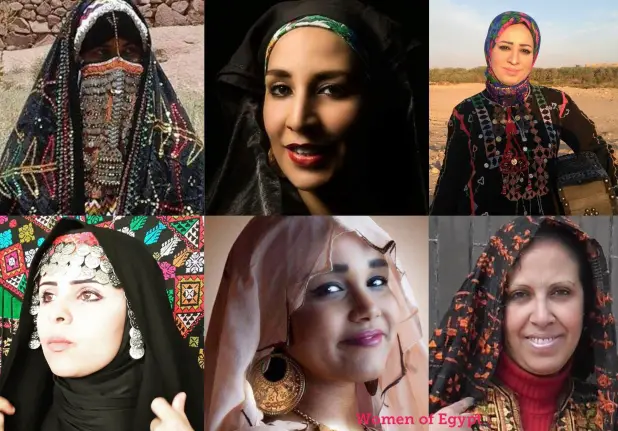
When the brothers Mohamed and Ali Reda formed their Folkdance Troop in the late fifties, they travelled across Egypt to capture the essence of the communities around the country. Their travels reached the most remote oases and nomadic tribes. They documented their costumes and music and studied their choreography. Their creations were outstanding. The government sent them in world tours to exhibit their productions, which depicted the immense cultural diversity that spans across Egypt.
This diversity is reflected in the costumes, music, dances, customs, traditions, cuisine and dialects of the various communities that spread across the land from north to south. From Siwa to Sinai, Port Said to Nubia. These cultures became woven into the rich tapestry that makes up the Egyptian unique identity. Until today, women in these communities wear their local costumes on their special occasions. They wear them with pride and grace. For it is not just a costume they carry around, but also a part of their identity and heritage.
Women of Egypt is shedding a light on some inspiring women from these communities, who are breaking social taboos, and whose achievements are empowering them and the women in their societies.
Dr. Amal Nassrallah
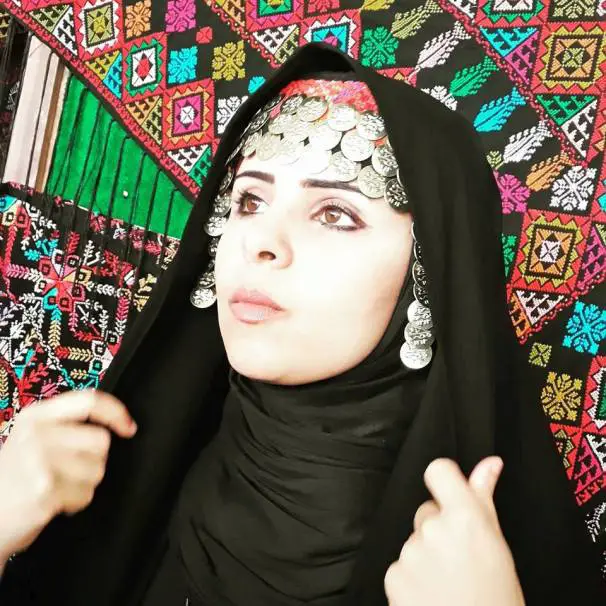
Dr. Amal Nassrallah, Chair of English Department at the University of Sinai
Born and raised in the conservative Bedouin town of Sheikh Zweid in North Sinai, Nassrallah was privileged to have a progressive father who believed in women’s education. Going against the conservative traditions of their community, he supported and encouraged her in her educational quest, until she received her PhD from the University of Sinai. Nasrallah is the first woman from her community to chair the English Department at the University of Sinai.
Nassrallah pledged an annual prize of L.E. 10000 to female students, in the towns of Sheikh Zweid and Rafah, who have demonstrated outstanding college-level achievements in their high school exams.
As a local who received a fair amount of education and also as a member of the academic society in North Sinai, the prize, which is named after her, is to show her gratitude and to give back to the community. She also wants to encourage girls who live in these rural towns to attend college, and to raise awareness among the locals about the importance of sending their daughters to college.
Amany El-Weshahy
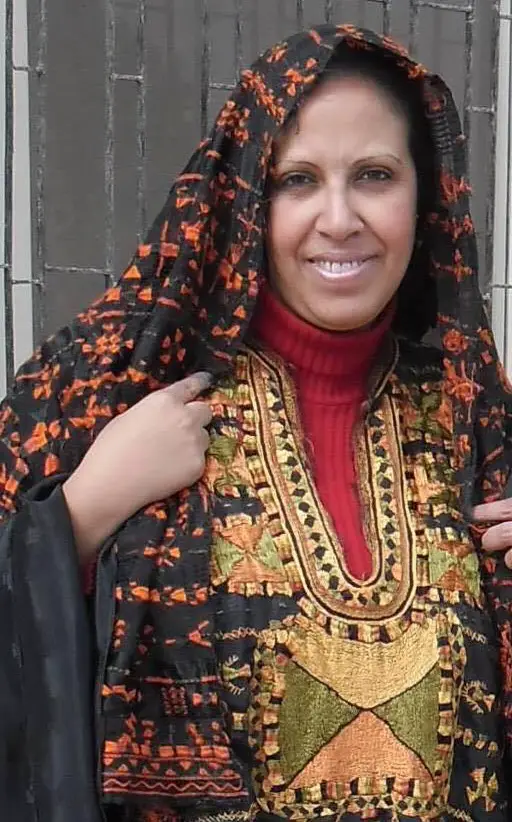 Amany El-Weshahy, Head of Egypt’s Amazigh community and Vice President of the International Amazigh Congress in Egypt
Amany El-Weshahy, Head of Egypt’s Amazigh community and Vice President of the International Amazigh Congress in Egypt
El-Weshahy is a writer and researcher in the Amazigh affairs and the representative of Egypt’s Amazigh community, one she belongs to. Her name is widely known as an advocate for their rights, and for that she became known as the mother of the Egyptian Amazigh.
“The Amazigh culture is still alive in Egypt,” says El-Weshahy. Out of the eleven tribes in the Oasis of Siwa, ten are Amazigh and only one is an Arab. Their population in Egypt exceeds 25,000. Within their small community, they speak a Berber dialect with a Siwan accent. Their language became known as the Siwi language. “Although this language is their cultural identity they are not taught how to write it, which threatens its survival.”
Lately El-Weshahy started organizing celebrations for the Amazigh New Year in Siwa, which is held on January 12. She also advocates for reviving the Egyptian culture and identity. Amany attributes her outspokenness about the controversial issues, she advocates for, to her Amazigh genes, as “Amazigh women are known for their courage and strength.”
Dalia Shaban
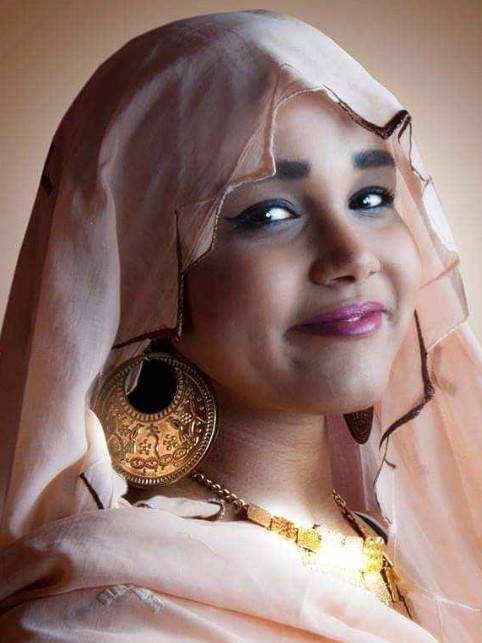
Dalia Shaban, Founding member of Nubian Knights
A graduate of Helwan University, Faculty of tourism, English department and a native Nubian, Dalia co-founded the group Nubian Knights.
Nubian Knights is an initiative to promote and preserve the Nubian heritage, and introduce people to its arts, history, culture, traditions and language. To accomplish that, they organize folkloric shows, workshops, language courses and various events and seminars in universities across the country, most of which are for free.
The Nubian Knights launched an internet radio station broadcasting Nubian music, never played on the Egyptian radio and television. They also developed the mobile app Nubi, to teach the Nubian language, which was used for coded messages during the 1973 war, and is still in use today among the Nubian communities.
Dalia and the Nubian Knights aspire to open Nubian culture centers across Egypt and to launch a television station that broadcasts in Nubian. They believe that the visual media is the most effective way to introduce people to the Nubian heritage and teach them the Nubian language.
By preserving and promoting their heritage, The Nubian Knights are also hoping to promote tourism in Aswan and Nubia, to develop the economy and upgrade the lifestyles of the communities in these regions.
Check out Nubian Knights Facebook page here
Noha Said Al-Mofti
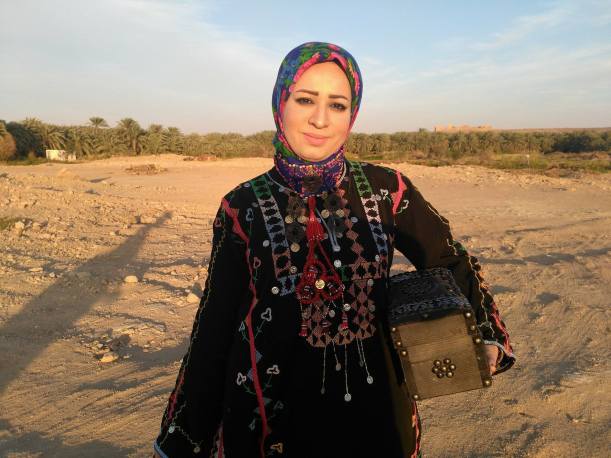
Noha Said Al-Mofti, Professor of Graphic Design, Faculty of Fine Arts, Assiut University
Noha, was born to Al-Awasheer family, in the village of Qasr al-Zayyat, Kharga Oasis, New Valley Governorate. As a young child, she played with her cousins on the vast dunes of the oasis, drawing on the sand images inspired by the desert landscape; palm trees, springs and groves. The kids surrounded her to watch her draw. She didn’t realize at the time that these drawings would inspire her doctorate dissertation
Noha graduated from the Faculty of Fine Arts, Helwan University, majoring in Graphic Design. She obtained her PhD in 2016. Her dissertation was a comparison between the paintings of the children in the New Valley and the pioneers of graphic art.
Noha is the first woman from the New Valley oases to receive a PhD in fine arts. She paints with sand and natural colored rocks on barks of palm trees and on murals. Her paintings are inspired by the natural environment of the New Valley oases.
In 2005, she created Miss Dates, a children beauty pageant that has been held annually, since then, on the National Day of the New Valley. The young contestants wear the national costumes of the oasis decorated palm dates and palm leaves and other decorative motifs worn by women in the oasis.
Nagwa Bakr
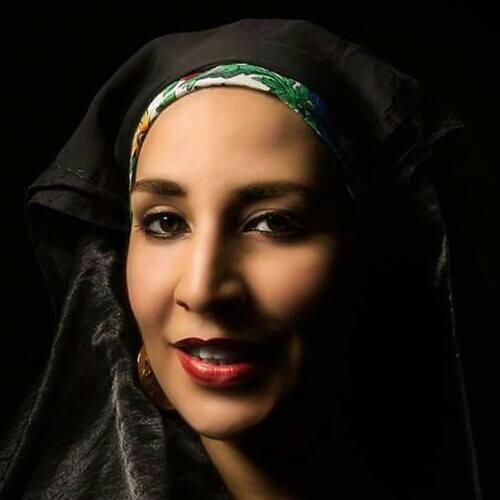
Nagwa Bakr, Museum Curator
After finishing high school in Assiut, Upper Egypt, in 1997, Nagwa Bakr fought a fierce battle with her father to pursue an archeology degree in Cairo. Her conservative southern Egyptian father was adamant not to allow her to leave and live away from home. But with the support and blessings of her mother and grandfather, she travelled to Cairo against her father’s wishes.
Leaving home at the age of 16 created a rift between Nagwa and her father. Other than sponsoring her financially, he stopped talking to her. Since then, she received two masters’ degrees, worked in the field of archelogy and traveled around the world to study museums.
Lately, Nagwa started documenting the history and stories of women from local communities. She wants to establish a Heritage Museum, to document the folk life and stories of women making local handicrafts in Egypt, similar to some of the ideas she saw at the Smithsonian during her visit to Washington DC.
Over the years, Nagwa and her father reconciled. Today they became close friends. Her education and travels became a source of his pride in the village.
Her mother is also proud of her and as supportive as ever. But like every Egyptian mother, she wishes to find a husband for Nagwa. On the other hand, her father encourages her to follow her dreams, travel and get her PhD.
Zahra Magdy
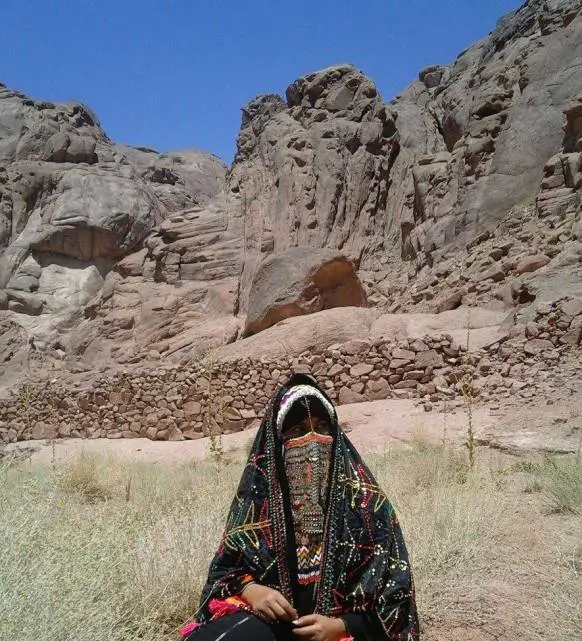
Zahra Magdy, Founder of Mountain Rose, Dried Fruits and Nuts Project in St. Catherine, South of Sinai
Zahra received her BSc. in Botany from the University of Mansoura in 2008. Her passion to study herbal medicine and Bedouin healing, led her to move to St Catherine to learn them from the Bedouins. In St. Catherine, she also enjoys hiking in the mountain trails. Her hiking trips inspired her business project, Mountain Rose.
She founded her project to produce healthy, lightweight and non-perishable energy food for hikers. The fruits and nuts she uses for the trail mix and energy bars are grown organically and sun dried without using any preservatives. She also produces organic honey with fruits, nuts and quince marmalade.
Zahra aims through her project, to help sustain the cultivation of fruits in remote valleys and to revive the fruit drying industry – a source of income for the locals, which has been ignored for many years. Her project also supports the Bedouin women in the local communities, and provides them with jobs and a source of income. She aspires to expand her project and export her products worldwide, for the world to taste the delicious fruits of Sinai.
Check out Mountain Rose Facebook page here
***If you liked this article, subscribe to the magazine and receive our articles in your email.
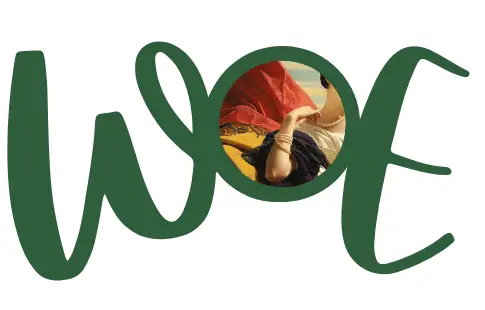
Very interesting indeed! I wish we could meet them.Fayza Haikal
LikeLiked by 1 person
Interesting educated women.
I studied middle eastern dance
Love the music, art, costumes.
Interested in Egypt and had hope to go one day.
LikeLike